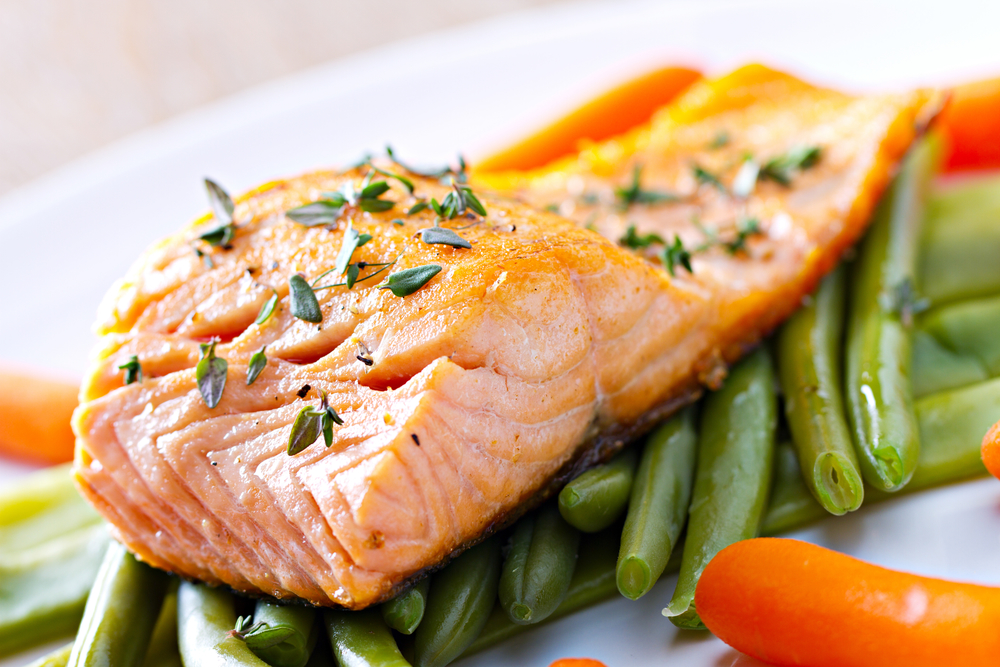


Fish is touted as one of the best sources of protein because of the types of fats it contains. It is one of the richest sources of omega-3 fatty acids. Studies show a link between omega-3 fatty acids and a reduction of certain inflammatory conditions.
Even if you don't like fish, you still have options to include these fats in your anti-inflammatory diet. Here is more information about omega-3 fatty acids, how they affect the body, and which foods are the best sources.
What Are Omega-3 Fatty Acids?
Omega-3 fatty acids are a complex of essential fats that your body can only get from food. These fatty acids help to reduce the types of inflammation that lead to heart, neurological, and joint problems. Omega-3 fatty acids come in three different types: EPA, DHA, and ALA.
EPA
Eicosapentaenoic acid (EPA) is the main driver against inflammation. EPA helps to support the heart and blood vessels as well as helps the immune system. EPA may also help reduce hot flashes in menopausal women.
DHA
Docosahexaenoic acid (DHA) is important in skin and eye development. In fact, infants need DHA for their eyes to develop normally. DHA may also have some brain and joint benefits and reduce your LDL (bad) cholesterol.
ALA
Alpha-linolenic acid (ALA) is mostly used in energy production. A small amount of ALA converts into EPA and DHA. However, your body cannot make enough of these two types of fatty acids from ALA alone. But ALA may have some positive heart health benefits on its own.
EPA and DHA omega-3 fatty acids work best when taken together. Used this way, they help reduce inflammation from rheumatoid arthritis and help reduce blood clots. They may also have benefits for people with asthma, Alzheimer's disease, and ADHD, but more studies are needed to make a definite conclusion.
Are Any Vegetarian Sources of Omega-3 Available?
The easiest way to get EPA and DHA omega-3 fatty acids is by consuming fish and fish oil. However, the original source of these fatty acids is from the synthesis of microalgae. The reason fish are a rich source of omega 3 fatty acids is due to their consumption of phytoplankton that consumed microalgae.

So if you don't like fish, or you are a vegetarian or vegan, look to microalgae and other plant sources for your essential omega 3 fats. Algae oils and supplements are one of the few truly vegan sources of DHA and EPA fatty acids. You can usually take these in capsule form. Some places may sell it as a liquid, which you can add to smoothies and drinks. If you are a vegetarian who eats eggs and dairy products, then you can get these fatty acids from those sources as well. ALA fatty acids are easy to obtain from plant foods such as walnuts, chia seeds, flaxseeds and hemp hearts.
Can One Ingest Too Many Omega-3 Fatty Acids?
It would take a lot to over consume these good for you fats, but too much of any of these fatty acids can be harmful. Omega 3 fats can cause thinning of the blood and excess bleeding in some individuals. If not taken with food, it can also cause stomach discomfort such as gas and diarrhea in some people. Taking up to 5,000 mg is considered safe. Furthermore, doses exceeding 5,000 mg have not been shown to have any added health benefit.
Omega-3 fatty acids are an important part of an anti-inflammatory diet. However, consult a nutritionist before you make major changes in your diet. Also, your nutritionist can direct you on how much or how often you should eat omega-3 rich foods. Living Proof's holistic nutritionist is available to work with your individual nutritional needs, so that you can achieve your best results. Contact us for a consultation to get started.